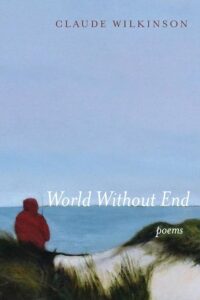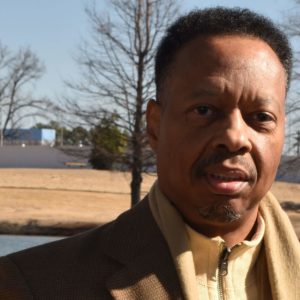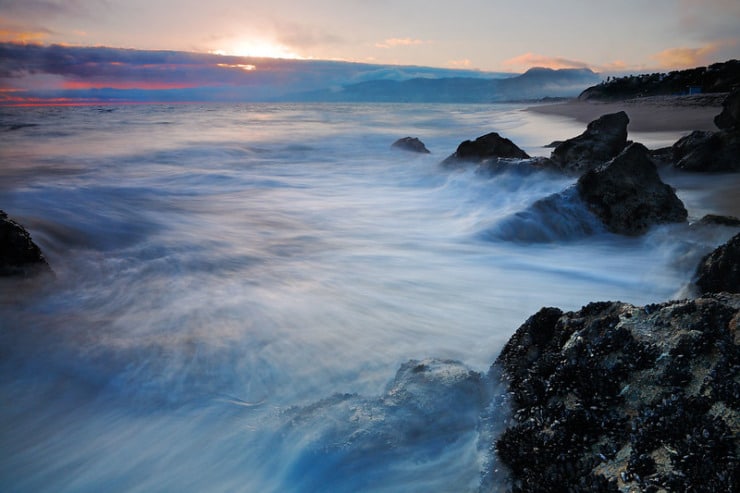Claude Wilkinson writes poetry of the seen and unseen
Consider everyday activities and objects, like a flight of doves, mowing the grass, pressing a flower or four-leaf clover in a book, salvia in the flower garden, or snow. We see them, we experience them, we sometimes wonder at their beauty or even meaning. (As a kid, I often wondered at the meaning of mowing the grass every week, and I decided it was something put on this earth to aggravate children.)
Poet Claude Wilkinson looks at these things, and he sees what we see, but he sees more. He notes the visible and what can be seen, but he also notes what is invisible and what isn’t readily seen. And in the unseen, he finds beauty, purpose, and meaning, and he realizes that often the unseen is more important, and more vital, than what can be readily seen.
His fourth collection of poetry, World Without End, is a collection about the unseen of objects and life. It may be a butterfly colliding with his windshield, or a cottonmouth on the banks of a river or stream. It may be watching canes being trimmed and pruned, the watching as important as the canes being watched. It may be looking at the Venus de Milo in the Louvre, and envisioning the ways the statue might have lost its arms. Or seeing Vincent van Gogh’s paintings of flowers (he painted a lot of flowers), and tracing all of the influences that came to bear.
Wilkinson even includes a poem about live bait, and one about watching his mother clean fish.
Remembering My Mother Cleaning Fish

in her leeching of their numb,
freshwater smell, the last
of their rainbow sheen.
Translucent scales flicked like alms
at her feet, she would then
slit the swell of their bellies
clean through to what could be
any ruffle of crimson things.
Opening a fat bullhead once,
and knowing the Bible
the way she did, my mother
more than likely thought of Jonah
when she found another whole fish inside—
in some spots above its gills
and next to fins, still as clear
as new flame, though lower,
already tinged with the rich gold
of decay—gone just long enough
to learn how infinity feels.

Claude Wilkinson
That last line may be the key to the poem, and the key to understanding the entire collection. Wilkinson looks at the everyday and the familiar, and he senses infinity, a presence beyond the object and what it is or what it does, or what its function might be. He turns what he senses into poetry, perhaps because poetry can communicate it even if it can’t fully explain it.
Wilkinson is a writer, poet, critic, and artist (he painted the cover illustration for World Without End, above). He received degrees from the University of Mississippi and the University of Memphis, and he has served as provost and writer in residence at the University of Mississippi. His poetry collections include Reading the Earth (1998), Joy in the Morning (2004), Marvelous Light (2018), World Without End (2020), and Soon Done with Crosses (2023). His poems and writings have been published in numerous anthologies and literary journals, including Atlanta Review, Blue Mesa Review, California State Poetry Quarterly, Oxford American, Southern Review, and Xavier Review, among others. He lives in Nesbit, Mississippi, near Memphis, Tennessee.
I didn’t expect World Without End to touch me as deeply as it did. Perhaps it’s my age, the time when you begin to dwell on the lasting and what matters in life. Wilkinson captures that sense of the beauty and mystery of the unseen, making it just as real as that cleaned fish or that lawn that needs mowing.
Photo by Pacheco, Creative Commons, via Flickr. Post by Glynn Young.
How to Read a Poem uses images like the mouse, the hive, the switch (from the Billy Collins poem)—to guide readers into new ways of understanding poems. Anthology included.
“I require all our incoming poetry students—in the MFA I direct—to buy and read this book.”
—Jeanetta Calhoun Mish
- Poets and Poems: Peter Murphy and “You Too Were Once on Fire” - October 14, 2025
- “Your Accent! You Can’t Be from New Orleans!” - October 9, 2025
- Poets and Poems: Donna Vorreyer and “Unrivered” - October 7, 2025


Leave a Reply